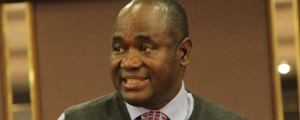
Reserve Bank of Zimbabwe governor Gideon Gono is expected to announce his first monetary policy statement for the current fiscal year not later than tomorrow. His statement comes at a time when the country’s financial services sector closed the prior year under the spotlight.
Editorial Comment
Firstly, the central bank chief is expected to deal with the issue of Treasury Bills (T-Bills), which have, in recent months, been snubbed by banks. The instruments have intensified the battle of attrition between Finance minister Tendai Biti and Gono in one corner versus bankers who feel that they are receiving a raw deal.
The central bank re-introduced the T-Bills in October, but only one issue was successful. The first and second auctions saw all bids rejected as the banks demanded high interest rates.
Embarrassed with this development, Gono last year said monetary authorities had been left with no option, but to intervene through the introduction of fiscal and monetary instruments that would force banks to subscribe to the T-Bills. Upon realising that moral suasion had apparently failed, he threatened the banks with stiffer action saying he had given the “last chance” to play ball.
The central bank being the monetary authority is thus expected to come up with measures which will strike a balance between Biti’s political scorecard and bankers’ interests. Clearly dealing with high interest rates, the monetary policy statement is also expected to tackle populist measures announced in the 2013 National Budget.
Biti in November proposed a directive ordering banks not to levy accounts with a balance of less than $800, a move expected to be a respite for the banking public but may have an adverse impact on banks. The budget also proposed that any term deposit of $1 000 and above held over a period of at least 30 days and above should attract an interest of at least 4% per annum. This and the issue of reducing bank charges, Gono has to address.
Another contentious issue that Gono is expected to address would be that of revised mining capital requirements for the financial services sector. The central bank last August raised minimum capital requirements for commercial banks to $100 million from $12,5 million. Although full compliance was set for 2014 under the staggered capitalisation exercise, banks were to raise $25 million by December 31 last year. A cursory view of capitalisation levels indicates that mainly foreign-owned banks and indigenous banks with government backing may raise the capital. This would obviously leave room for weaker banks to merge or fold, something Gono should address.
- Chamisa under fire over US$120K donation
- Mavhunga puts DeMbare into Chibuku quarterfinals
- Pension funds bet on Cabora Bassa oilfields
- Councils defy govt fire tender directive
Keep Reading
Apart from meeting the revised minimum capital levels, banks were with effect from this month expected to start executing the Basel II Implementation Action Plan by the Reserve Bank of Zimbabwe, which sets new criteria for determining the minimum regulatory capital for banking institutions. The new system that seeks to strengthen the financial sector and expand the central bank’s supervisory role. As electioneering hots up and Zanu PF intensifies its indigenisation campaign, now mainly targeting banks, the Reserve Bank is now expected to be the last line of defence which protects the fragile sector. Will Gono draw the line in the sand?











